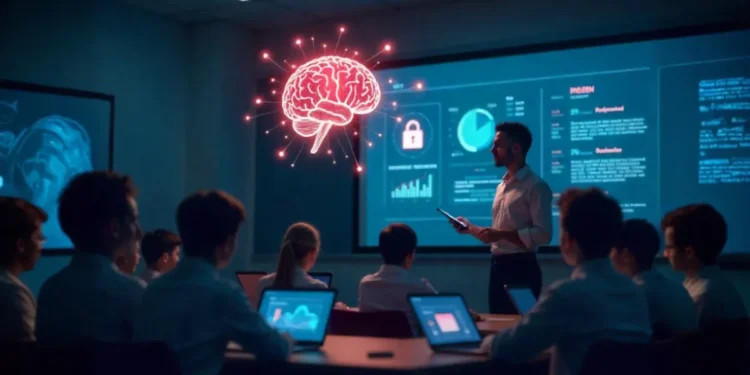The Rise of Artificial Intelligence in Schools
American classrooms are beginning to use artificial intelligence to change the way students learn. AI tools offer personalized lessons, adaptive teaching, and instant feedback that can improve education. However, this promise is facing growing concerns from parents and the public. The latest PDK poll shows that while AI has potential, many people are worried about how it will affect student privacy and fairness in schools.
Parents Show Strong Concerns
Parents are becoming less confident about the use of AI in education. Almost seven out of ten parents do not want AI software to access student grades, test results, or personal details. This concern highlights a bigger issue in society about how new technologies should be used in classrooms. Many fear that student information may not be fully protected.
Mixed Opinions on Different Uses
The poll results show that people support some uses of AI but not others. Last year, 62 percent supported teachers using AI for lesson planning. This year, that number dropped to 49 percent. Only 38 percent support students using AI for homework, making it the least popular option. On the other hand, 60 percent still support AI tutoring tools, although this number has also decreased.
The Importance of Clear Communication
For AI to succeed in schools, education leaders need to communicate openly with parents and communities. Parents want to know not only how AI will improve learning but also how schools will keep student data safe. Without transparency, public doubts may slow down or even block the use of AI in classrooms.
Agreement on Teaching Technology Skills
Even with concerns about AI, most Americans agree that students should learn about technology. About six in ten people believe that teaching AI skills and safe use of social media is very important for student success in the future.
The Challenge of Equal Access
AI in education also raises questions about fairness. Students from wealthy families are more likely to use advanced AI tools, while those from low-income households may be left behind. Policymakers need to make sure all students benefit from technology, not just the privileged few.
Moving Forward Despite Concerns
Governments and private companies continue to invest in AI for schools. New programs focus on training teachers and bringing adaptive tools into classrooms. However, success will depend on building trust with parents, protecting data, and ensuring equal access for all students.
A Critical Moment for AI in Education
AI has the power to transform education by making learning more personal and effective. Still, privacy concerns, unequal access, and public doubts remain strong. The future of AI in classrooms will depend on trust, clear rules, and careful planning. Without these steps, AI might be remembered as a missed chance rather than a true educational breakthrough.
Also read: Canada Updates Rules on Biometric Technology Usage










